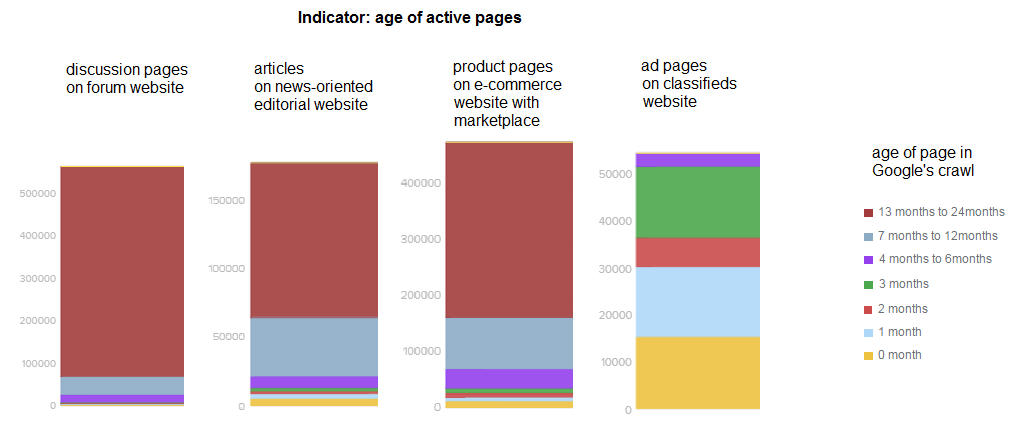Keyword Research for SEO: How to Create a Killer Keyword Strategy


Everyone seems to have different ideas about what it means to create a keyword strategy for SEO.
Do you pick keywords because they have a high search volume? Because your competitors are targeting them? How do you know what keywords you should be spending time on?
One place that’s a little less common to look for keyword ideas is your own website. You read that correctly. There may be huge organic traffic opportunity in your existing keywords, just waiting to be unlocked.
You see, most websites are ranking for thousands of keywords already. It’s just that many of the positions they occupy are low in the search engine results pages (SERPs) where they never get clicked, or simply not descriptive or appealing enough to be clicked on regardless of their position.
Before you think about starting from square one with brand-new keywords, you can build a killer keyword strategy with the keywords already at your disposal.
Step 1: Identify keywords that result in impressions but no clicks
Where are you missing clicks?
One of the first steps in building a great organic keyword strategy for your website is to identify all your missed opportunities. In other words, you want to compile a list of all the keywords you currently rank for but are not getting traffic for.
A graph like this one from Botify Keywords can show you how many clicks you’re missing over time.


You can then drill down further to see exactly which keywords you’re missing out on. From here, you could choose to prioritize the keywords that you’re missing the most clicks for (highest impressions). Improving the pages that are ranking for these keywords could result in the biggest traffic wins.


That’s great in theory, but how do you apply your new list of keywords in a way that actually makes a positive impact on your website’s organic traffic?
You have two options, depending on your data.
- Focus on improving rank position: It makes sense to be missing out on clicks for keywords you’re not ranking well for. If you notice that the bulk of your URLs fall into this bucket, you can focus on finding improvements those pages might need. For example, you can pair your missed click data with data such as word count to see if a quality issue might be causing your page to rank in a lower position for that keyword.


- Focus on improving organic CTR: It’s a little bit more strange to see pages ranking in the top spots for a particular keyword but not getting clicked on. In these situations, it’s a good idea to look at ways to improve your organic CTR. For example, you can set your filter to view whether or not your keyword is missing in your title tag. Adding your keyword to the title tag could make your page appear more relevant to the searcher and win you more clicks.


Step 2: Identify keywords where you rank in a position with low organic CTR
Another way to identify high-opportunity keywords is to view URLs that are currently ranking in positions with a low organic click-through rate (CTR). In this step, you’re trying to find out which pages could be getting more traffic if they ranked in a different position for a particular keyword.
In the example below, you can see that pages ranking in position #4 on Google get clicked on very infrequently. URLs in position #3 get clicked on much more often.


Clicking on the 4 column will allow you to see all pages that rank in that position, along with what keywords are triggering them.


In this particular example, the #4 position has an average organic CTR of 0.2% while the #3 position has an average organic CTR of 5.42%. If the keyword “women’s running shoes” gets searched 90,000 times per month, moving from the #4 into the #3 position could yield a 96% increase in organic traffic!
There’s a wealth of keyword ideas for your website when you segment your pages by those with low organic CTR.
Step 3: Find keywords that you’re performing worse for on mobile
You may be missing out on a huge amount of organic traffic because you have a poor mobile experience.


This often happens when the mobile versions of pages lack parity with the desktop versions of those pages. You can click into the report to view exactly which keywords are generating the most missed clicks on mobile.
If you have separate mobile/AMP versions of your pages, head on over to the content tab to see of dissimilarity between the two versions of your pages is what’s causing the issue.


Google has been progressively moving websites over to the mobile-first index, which means they’re starting to crawl, index, and rank pages based on their mobile version. If a website has less content and important code on the mobile versions of their webpages, they’ll likely suffer when Google moves them over to mobile-first indexing, so this is a great way to check for that.
Step 4: Find keywords with the biggest losses in impressions and clicks
Part of a solid keyword strategy is keeping your finger on the pulse. You want to be able to monitor your keyword rankings and take action if anything goes awry.
One way to do this is by keeping track of keywords that your website is losing the most impressions and clicks for.


If you run a news-based website, it makes sense that you’ll lose traffic for non-evergreen URLs once their moment has passed.
If your content is subject to seasonality (ex: swimsuits in the winter), then seasonal drops in impressions and clicks will make sense as well.
However, if your evergreen content has suffered substantial ranking drops for certain keywords, that’s something to take action on.
Step 5: Find trending keywords to capitalize on
Do you know which keywords are trending in your industry? While you could go to Google Trends to view general interest in a topic, you can get even more specific by seeing which keywords your site already ranks for that are surging in popularity.


This can tell you what topics are of most interest to your audience at any given moment. You can use those keywords as ideas for creating more content that your audience will love and drive additional organic traffic.
Putting your keyword data to work
As you can see, there’s tons of organic potential in your website’s existing keywords, but that’s only half the battle. Once you have your keyword list, you have to be able to use that data intelligently to make improvements.
In today’s search landscape, we know that stuffing your keyword into the body copy to achieve a certain keyword density isn’t going to cut it. Google wants to rank content that’s the best, most relevant answer to each searcher’s query. So how do we figure out what content Google wants to serve so that we can rank better for those keywords?
One of the best ways to do this is to use your own website’s data. There are lots of “SEO best practices” out there when it comes to content, but do you know what qualities define the best-performing content for your website?
For example, a ranking correlation study might say that top-ranked pages are at least 2,000 words long, but is that true of your website? Maybe your top-ranked pages are all 500 words. Why follow industry averages when you have your own website’s data at your disposal?
The point is, you don’t need to get bogged down with finding new keyword ideas from competitors or keyword volume tools, and you don’t need to spend your time guessing whether those findings you read in a correlation study will help your website improve.
A lot of what you need is already on your website — now go out there and maximize it!





